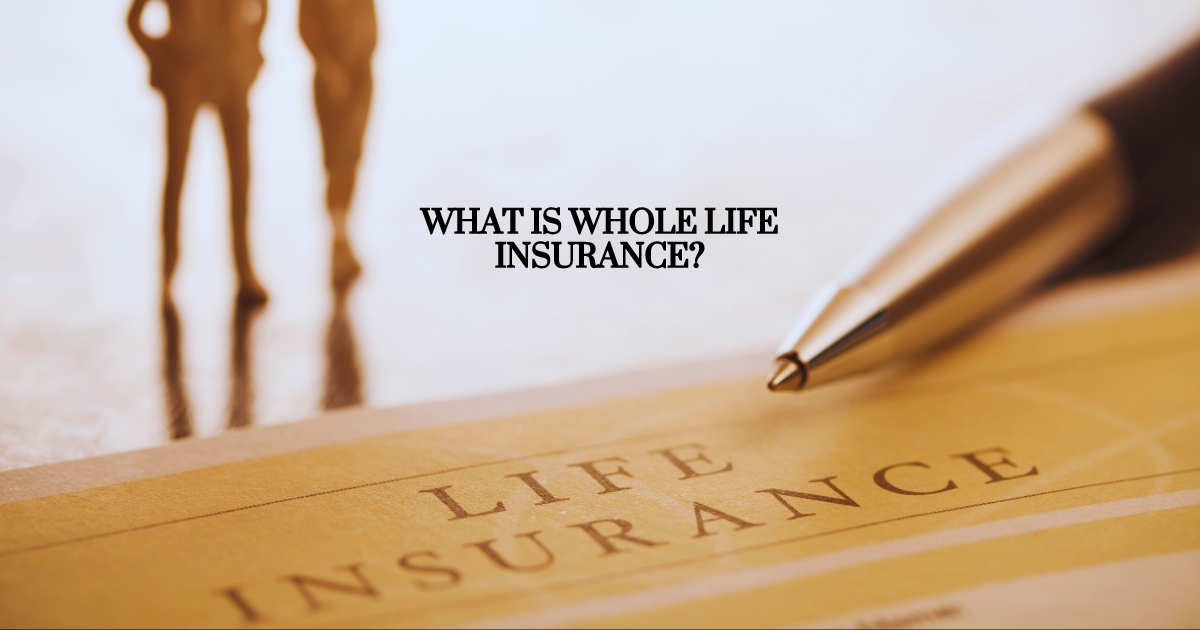Have you ever wondered what cash value life insurance is and how it might benefit you? Cash value life insurance is a type of permanent life insurance policy that combines death benefit protection with a savings or investment component. This unique financial product offers lifelong coverage and the potential to build cash value over time. In this article, we’ll explore the ins and outs of cash value life insurance, helping you understand its features, benefits, and potential drawbacks.
How Cash Value Life Insurance Works
Cash value life insurance is designed to provide coverage for your entire life while also allowing you to accumulate cash value within the policy. Let’s break down the key components of how this type of insurance works:
Premium Payments
When you purchase a cash value life insurance policy, you’ll make regular premium payments. These payments are typically higher than those for term life insurance because a portion of each premium goes towards building the cash value of the policy. The insurance company allocates your premium payments into three main categories:
- Cost of insurance: This covers the actual life insurance protection.
- Policy fees and charges: These cover the insurer’s administrative costs.
- Cash value: The remaining portion goes into the cash value account.
Death Benefit
Like all life insurance policies, cash value life insurance provides a death benefit to your beneficiaries when you pass away. This death benefit is typically tax-free and can help provide financial security for your loved ones after you’re gone.
Cash Value Accumulation
The cash value component is what sets this type of insurance apart from term life policies. Over time, the cash value of your policy grows on a tax-deferred basis. Depending on the specific type of cash value life insurance you have, this growth may be based on a fixed interest rate, the performance of underlying investments, or a combination of both.
As your policy’s cash value grows, you may have several options for accessing or utilizing it:
- Policy loans: You can borrow against the cash value at a relatively low interest rate.
- Partial withdrawals: Some policies allow you to withdraw a portion of the cash value.
- Surrender: If you no longer need the coverage, you can surrender the policy and receive the cash value (minus any fees).
- Premium payments: In some cases, you can use the cash value to pay your premiums.
It’s important to note that accessing the cash value may reduce the death benefit and could have tax implications, so it’s wise to consult with a financial advisor before making any decisions.
Types of Cash Value Life Insurance
There are several types of cash value life insurance policies, each with its own unique features and potential benefits. Let’s explore the main types:
Whole Life Insurance
Whole life insurance is the most straightforward and traditional form of cash value life insurance. Key features include:
- Fixed premiums that remain the same throughout your life
- Guaranteed death benefit
- Guaranteed cash value growth at a fixed rate
- Potential dividends (if you have a participating policy)
Whole life insurance provides predictability and stability, making it an attractive option for those who prefer a more conservative approach to their life insurance and savings.
Universal Life Insurance
Universal life insurance offers more flexibility than whole life insurance. Here’s what you need to know:
- Adjustable premiums and death benefits (within certain limits)
- Cash value growth based on current interest rates
- Ability to use cash value to pay premiums
This type of policy can be beneficial if you want more control over your premium payments and coverage amounts. However, it’s important to monitor the policy regularly to ensure it remains adequately funded.
Variable Life Insurance
Variable life insurance introduces an investment component to your policy. Key features include:
- Cash value invested in a variety of sub-accounts (similar to mutual funds)
- Potential for higher returns (and higher risk) based on investment performance
- Death benefit may fluctuate based on investment performance
This type of policy may appeal to those comfortable with market risk and who want the potential for higher cash value growth. However, it’s important to understand that poor investment performance could negatively impact your policy’s cash value and death benefit.
Indexed Universal Life Insurance
Indexed universal life insurance is a hybrid policy that combines features of universal life and variable life insurance. Here’s what sets it apart:
- Cash value growth tied to the performance of a stock market index (e.g., S&P 500)
- Typically includes a minimum guaranteed interest rate
- Often has a cap on maximum returns
This type of policy aims to provide the potential for higher returns than traditional universal life insurance while offering some protection against market downturns.
Benefits of Cash Value Life Insurance
Cash value life insurance offers several potential benefits that make it an attractive option for many individuals. Let’s explore some of the key advantages:
Lifetime Coverage
One of the primary benefits of cash value life insurance is that it provides coverage for your entire life, as long as premiums are paid. This can be particularly valuable if you have long-term financial obligations or want to ensure that your beneficiaries receive a death benefit regardless of when you pass away.
Unlike term life insurance, which expires after a set period, cash value life insurance offers peace of mind knowing that your coverage will remain in force throughout your lifetime. This can be especially important for individuals with dependents who may need long-term financial support or those who want to leave a legacy for their heirs.
Tax Advantages
Cash value life insurance comes with several tax benefits that can make it an attractive component of your overall financial strategy:
- Tax-deferred growth: The cash value in your policy grows on a tax-deferred basis, meaning you won’t owe taxes on the growth as long as the policy remains in force.
- Tax-free death benefit: The death benefit paid to your beneficiaries is generally income tax-free, providing them with the full amount of the benefit.
- Tax-free access to cash value: In many cases, you can access your policy’s cash value through loans or withdrawals without triggering a taxable event, as long as the policy remains in force and is not a Modified Endowment Contract (MEC).
These tax advantages can help you accumulate wealth more efficiently and provide tax-free income in retirement. However, it’s important to consult with a tax professional to fully understand the implications for your specific situation.
Investment Component
The cash value component of these policies provides an opportunity for long-term savings and investment growth. Depending on the type of policy you choose, you may have various options for how your cash value grows:
- Whole life insurance offers guaranteed growth at a fixed rate
- Universal life insurance provides interest-based growth
- Variable life insurance allows for investment in various sub-accounts
- Indexed universal life insurance offers growth tied to market index performance
This investment component can serve as a supplement to your other retirement savings strategies, potentially providing an additional source of funds in your later years.
Loan Options
One unique feature of cash value life insurance is the ability to borrow against your policy’s cash value. These policy loans often come with several advantages:
- Lower interest rates compared to many other types of loans
- No credit check required
- Flexible repayment terms
You can use these loans for various purposes, such as funding a child’s education, starting a business, or covering unexpected expenses. However, it’s crucial to understand that unpaid loans will reduce the death benefit and could potentially cause the policy to lapse if not managed properly.
For more information on the tax implications of life insurance, you can visit the IRS website: https://www.irs.gov/publications/p525#en_US_2022_publink1000229587
Drawbacks of Cash Value Life Insurance
While cash value life insurance offers numerous benefits, it’s important to consider potential drawbacks before deciding if it’s the right choice for you:
Higher Premiums
One of the most significant drawbacks of cash value life insurance is the higher cost compared to term life insurance. Because a portion of your premium goes towards building cash value, you’ll typically pay more for the same amount of death benefit coverage. This higher cost can make it challenging for some individuals to afford the coverage they need, especially in the early years of the policy.
Complexity
Cash value life insurance policies can be complex financial products with various moving parts. Understanding how premiums, death benefits, cash value accumulation, and potential investment options work together can be challenging for many policyholders. This complexity may make it difficult to:
- Compare different policies and options
- Understand the true cost of your coverage
- Make informed decisions about policy loans or withdrawals
- Evaluate the overall performance of your policy
It’s often recommended to work with a knowledgeable financial advisor or insurance professional to help navigate these complexities and ensure you’re making the best decisions for your financial situation.
Lower Initial Death Benefit
Because a portion of your premiums goes towards building cash value, cash value life insurance policies typically offer a lower initial death benefit compared to term life insurance for the same premium amount. This means that in the early years of the policy, you may have less protection for your beneficiaries than you would with a term policy.
For those primarily concerned with maximizing death benefit protection for their loved ones, especially during their working years, this lower initial death benefit can be a significant drawback.
Who Should Consider Cash Value Life Insurance?
Cash value life insurance isn’t the right choice for everyone, but it can be an excellent option for certain individuals and situations. Here are some scenarios where cash value life insurance might be worth considering:
Long-term Financial Planning
If you’re looking for a life insurance policy that can also serve as a long-term savings vehicle, cash value life insurance might be a good fit. This type of policy can be particularly beneficial if you:
- Have maxed out other tax-advantaged savings options like 401(k)s and IRAs
- Want an additional source of tax-free income in retirement
- Desire a policy that will last your entire lifetime
The cash value component can provide a source of funds for various financial needs throughout your life, while still maintaining a death benefit for your beneficiaries.
Estate Planning
Cash value life insurance can play a valuable role in estate planning, especially for high-net-worth individuals. Some potential benefits include:
- Providing liquidity to pay estate taxes
- Equalizing inheritances among heirs
- Funding a trust to provide for a special needs dependent
The death benefit from a cash value life insurance policy can help ensure that your estate is distributed according to your wishes while minimizing the tax burden on your heirs.
Business Owners
Business owners may find cash value life insurance particularly useful for several reasons:
- Key person insurance: Protecting the business against the loss of a crucial employee
- Buy-sell agreements: Funding the purchase of a deceased partner’s share of the business
- Executive compensation: Offering additional benefits to attract and retain top talent
The flexibility and long-term nature of cash value life insurance can make it a valuable tool in various business planning scenarios.
For more information on life insurance and business planning, you can visit the U.S. Small Business Administration website: https://www.sba.gov/business-guide/manage-your-business/get-business-insurance
Alternatives to Cash Value Life Insurance
While cash value life insurance can be a valuable financial tool, it’s not the only option available. Here are two common alternatives to consider:
Term Life Insurance
Term life insurance provides coverage for a specific period (e.g., 10, 20, or 30 years) and typically offers:
- Lower premiums for the same amount of coverage
- Simplicity and ease of understanding
- The ability to convert to permanent coverage in some cases
Term life insurance may be a better choice if you:
- Need maximum coverage at the lowest cost
- Only require coverage for a specific period (e.g., until your children are grown)
- Prefer to invest separately from your life insurance
Investing Separately
Instead of combining life insurance and investing in a single product, you might choose to:
- Purchase a term life insurance policy for pure death benefit protection
- Invest the difference in premiums in a diversified portfolio of stocks, bonds, or other investments
This approach, often called “buy term and invest the difference,” can potentially offer:
- Greater flexibility in your investment choices
- Lower overall costs
- More transparency in your insurance and investment performance
However, it requires more discipline and active management on your part to ensure you’re consistently saving and investing the difference in premiums.
Conclusion
Cash value life insurance can be a powerful financial tool, offering lifelong coverage, tax advantages, and the potential for cash value accumulation. However, it’s not without its drawbacks, including higher premiums and complexity. Whether cash value life insurance is right for you depends on your individual financial situation, goals, and risk tolerance.
Before making a decision, it’s crucial to carefully consider your options, compare different policies, and consult with a qualified financial advisor or insurance professional. They can help you determine if cash value life insurance aligns with your overall financial strategy and provide guidance on choosing the right policy for your needs.
Remember, the best life insurance policy for you is one that provides the coverage you need at a price you can afford, while also aligning with your long-term financial goals. Take the time to educate yourself, ask questions, and make an informed decision that will provide financial security for you and your loved ones for years to come.
FAQs
Q: How long does it take for cash value to build up in a life insurance policy?
A: The time it takes for cash value to build up varies depending on the policy type and premium payments. Generally, it can take 10-15 years to accumulate significant cash value, but this can vary widely based on individual circumstances and policy details.
Q: Can I lose money in a cash value life insurance policy?
A: While it’s unlikely to lose your entire investment, poor policy performance, early surrender, or taking excessive loans against the policy can result in lower cash value than the total premiums paid. It’s important to carefully manage your policy and consult with a financial advisor.
Q: Is cash value life insurance a good investment?
A: Cash value life insurance can be a good investment for some people, particularly those looking for tax-advantaged growth and lifetime coverage. However, it’s generally not considered a primary investment vehicle due to higher costs and potentially lower returns compared to other investment options.
Q: What happens to the cash value when I die?
A: In most cases, the cash value is absorbed by the insurance company when you die, and only the death benefit is paid to your beneficiaries. Some policies offer riders that allow beneficiaries to receive both the death benefit and cash value.
Q: Can I cash out my life insurance policy?
A: Yes, you can typically surrender your cash value life insurance policy and receive the accumulated cash value minus any surrender fees. However, this terminates your coverage and may have tax implications, so it’s important to carefully consider this decision and consult with a financial advisor.



